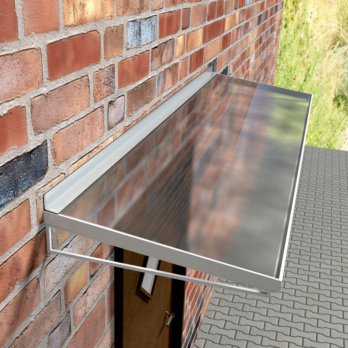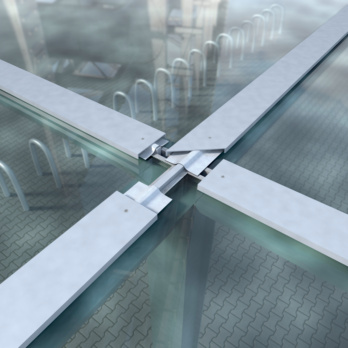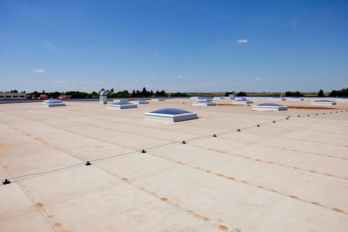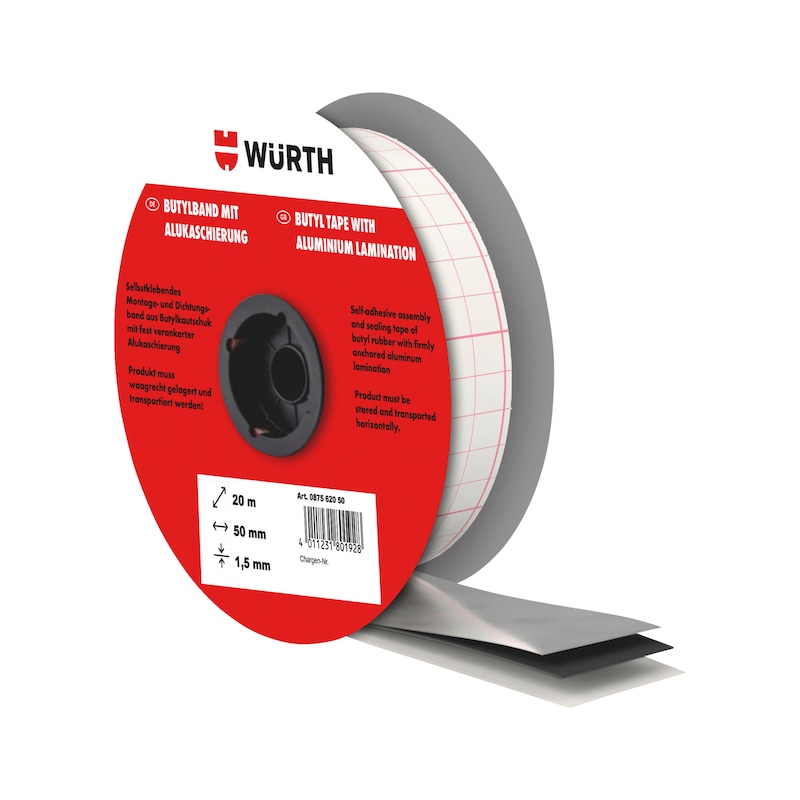The images are examples. For detailed information, other images and documents, please select individual articles from the following table.
Butyl tape with aluminium lamination
Self-adhesive butyl rubber mounting and sealing tape with firmly anchored aluminium lamination - weather resistant and adheres to all common substrates in the construction sector
Register now and access more than 125,000 products
Variants
Register now and access more than 125,000 products
Good UV, weathering and water resistance
- The butyl tape can also be used outdoors and withstands rain and any other weather effects (not suitable for use under water).
- Non-corrosive
Excellent adhesion to absorbent and non-absorbent substrates
Can be used on all substrates present in the construction sector, e.g. steel, aluminium, glass, plastic, wood, concrete, masonry, bitumen etc.
Butyl tapes are self-bonding
The tape is fully functional immediately after application and complies with all required properties.
Impermeable to vapour diffusion
The butyl tape enables water-tight sealing and prevents moisture from penetrating the building.
- No bimetal effect
- Compatible with bitumen
- Sound insulating
- Easy to apply
- Odourless
- Suitable for contact with food
- Solvent free and bitumen free
- Complies with IVD technical data sheets no. 5, 19-1, 19-2, 25, 29, 31, 35
- Compatible with bitumen in accordance with DIN EN 1548
ISEGA:
- For sealing piping systems in which dry food is transported
- Clearance certificate no.: 65015 U 25
Complies with VOC requirements according to:
- EMICODE EC 1 Plus
- AgBB scheme
- French VOC Class A+ and "KMR ordinance"
- Screwing in/penetrating the butyl tape must be avoided
- Butyl cannot be secured mechanically!




 The aluminium sealing tape is perfect for overlapping in order to seal the frame opposite the areas adjoining the roof recess
The aluminium sealing tape is perfect for overlapping in order to seal the frame opposite the areas adjoining the roof recess
- Complies with IVD technical data sheets no. 5, 19-1, 19-2, 25, 29, 31, 35
- Compatible with bitumen in accordance with DIN EN 1548
ISEGA:
- For sealing piping systems in which dry food is transported
- Clearance certificate no.: 65015 U 25
Complies with VOC requirements according to:
- EMICODE EC 1 Plus
- AgBB scheme
- French VOC Class A+ and "KMR ordinance"
The usage instructions are recommendations based on the tests we have conducted and on our experience; carry out your own tests before each application. Due to the large number of applications and storage and processing conditions, we do not assume any liability for a specific application result. Insofar as our free customer service provides technical information or acts as an advisory service, no responsibility is assumed by this service except where the advice or information given was part of our specified, contractually agreed service or the advisor was acting deliberately. We guarantee the consistent quality of our products. We reserve the right to make technical changes and further develop products. Please refer to the technical data sheet.
For covering seals of construction and connection joints in areas of industry and construction, concrete and concrete finished parts construction. Typical applications include sealing domed roof lights, window frames, slanted-roof glass structures (with press-on profile only), greenhouses, conservatories and other butt joints made from glass, plastic and metal. Also suitable for sealing roof penetrations, rain gutter connections, connections between projecting roofs and masonry as well as piping systems in which dry food is transported.
The surfaces to be sealed must be dry, capable of bearing load and free from grease and dust. The application temperature should not be below +10°C. Absorbent and porous surfaces must be pre-treated with Würth butyl/bitumen primer (art. no. 0892875).
To obtain good initial adhesion to the surface, the tape should be pressed onto the surface and smoothed using a press-on roller (art. no. 0693011756). Folds and creases should be avoided.
Butyl has a "cold flow" tendency (flow characteristic of the tape). Therefore, the tape should always be fitted with a press-on profile to prevent the seal from slipping as a result of, for example, the weight of snow or backed-up water. However, using excessive contact pressure on the profile will cause the sealing compound to be "pushed out". Also, never compress the butyl tape to the zero point (use the supplied disc as a spacer)!
The adhesive surface of the sealing tape must be at least 1/3 (per contact surface) of the tape width when gluing over joints. Overhead adhesion tasks are not permitted without additional mechanical fixings. When sealing glass retainer profiles, the rubber profile must not lie on the sealing tape. The width of the butyl tape must be selected such that the tape is located between the rubber profiles.
Select RAL-colour code
!! NOTE: On-screen visualisation of the colour differs from real colour shade!!



















